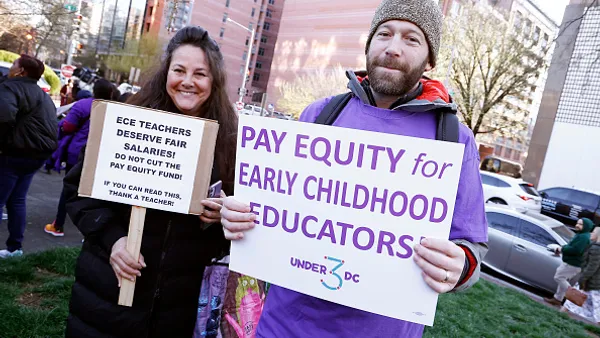As companies navigate new return-to-office policies in 2025, differing schedules and in-office expectations may create a hybrid hierarchy among teams, according to Korn Ferry’s 2025 Talent Acquisition Trends report.
For instance, companies seeking new talent may offer greater flexibility to attract top candidates, which could frustrate those with more stringent in-office requirements. In-demand workers may also be more likely to demand better pay, potentially widening the gap between current staff and new hires, Korn Ferry said.
“That’s invariably going to create some sensitivities,” Mark Royal, a senior client partner at Korn Ferry, said in a statement. “Candidates are placing priority on flexible work arrangements when it comes to choosing, staying or potentially leaving.”
To manage the hierarchy among workers, companies should develop a consistent and transparent rationale, Royal said. If a new hire joins a team and has a flexible schedule arrangement, managers should explain why clearly. The worst option would be for managers to avoid explanation or say “that’s not your business,” which could exacerbate the issue, he noted.
In addition, companies can offer “full-circle flexibility” by allowing employees to work in the ways that suit them best, which Korn Ferry calls “Hybrid 360.” This type of flexibility is one of the firm’s top five talent acquisition trends of 2025.
“Companies that cling to traditional ways of working will likely struggle to attract and retain people,” according to the Korn Ferry report. “The more flexibility an organization offers, the better its chances of building an engaged, motivated and loyal workforce.”
About half of employees would prefer working for a company that offers hybrid and remote work flexibility, and half said they’d consider looking for a new job if flexibility were reduced, according to an Eagle Hill Consulting report. However, only 30% said their employer has asked about their preferences regarding remote work, which could signal an area for employers to gauge worker sentiment to make informed policy decisions, the firm said.
In addition, companies with RTO policies are reporting mixed results for employee morale, recruitment and retention, according to a Pearl Meyer report. Moving forward, companies need clear communication and manager training to maintain employee morale and RTO policy effectiveness, the report found.













